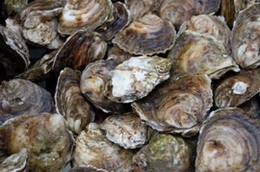 A section of water in Washington state’s Grays Harbor County has been closed off to shellfish harvest after high levels of bacteria were discovered in the area.
A section of water in Washington state’s Grays Harbor County has been closed off to shellfish harvest after high levels of bacteria were discovered in the area.The Washington State Department of Health announced Tuesday that waters near Ocean Shores, WA would be closed permanently for the next year, and 11 other harvest areas have been marked as “threatened.”
In threatened areas, levels of fecal bacteria are reaching the health department’s safety threshold, and are in danger of rising above it.
“If water quality in the threatened shellfish areas gets worse we’ll have to restrict or close harvesting there,” said Bob Woolrich, WSDH’s Growing Area Section Manager. “Having an area listed as ‘threatened’ is a signal to communities to identify and correct pollution problems.”
This year, those threatened areas include:
- In Grays Harbor County: Grays Harbor and Pacific Coast
- In Kitsap County: Port Orchard Passage
- In Mason County: Hood Canal 6 (Alderbrook area) and Pickering Passage (McLane Cove)
- In Pacific County: Bay Center and Naselle River
- In Pierce County: Burley Lagoon
- In Thurston County: Henderson Inlet and Nisqually Reach
- In Whatcom County: Portage Bay
Efforts to fix problems in these areas are already underway in some places, according to the health department, and investigations are scheduled to commence soon in others.
The warnings were issued as part of WSDH’s annual water quality evaluation of the state’s commercial shellfish harvest areas.
“This early warning helps protect the valuable shellfish resources in Washington state,” said Marc Daily, interim executive director of the Puget Sound Partnership, the state agency in charge of ensuring that dollars allocated for Puget Sound recovery are allocated effectively. “Our partners have been successful in taking this information and improving water quality by finding and fixing sources of fecal bacteria from on-site septic systems and farms,” Daily said in a statement Tuesday. “We expect that to continue. Thanks to the combined efforts of the Department of Health, local governments, farmers, conservation districts, private landowners and so many others, Puget Sound is seeing real, measureable improvement.”







